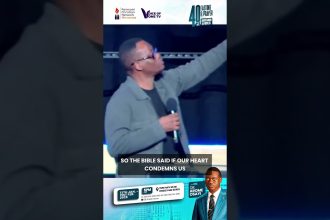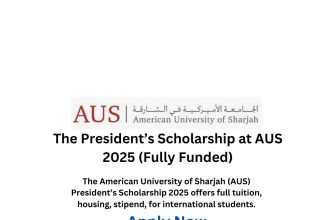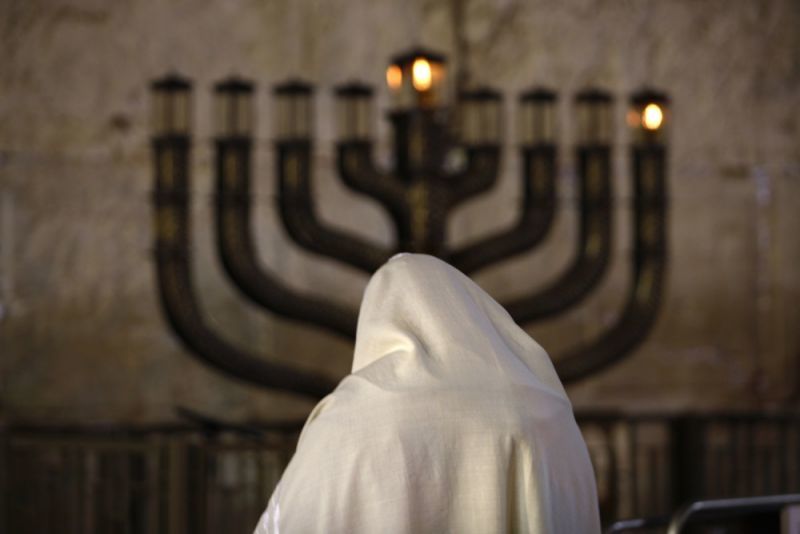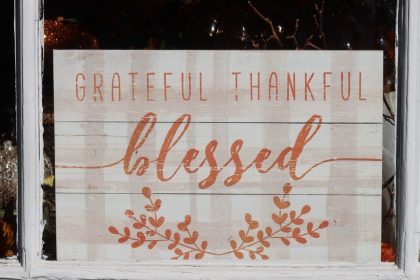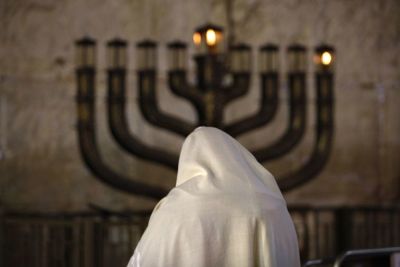
For me, as an Iranian Christian coming from an Islamic background, Christmas and also Hanukkah have special and deep meanings. As over 2 million Muslim background Iranian Christians celebrate their salvation during Christmas, Hanukkah reminds them how the past and future of the two nations, Israel and Iran, are tied together.
To understand this tie, let us first look at what Hanukkah is. It is a vibrant and joyous Jewish festival that beautifully coincides with Christmas. This time-honored celebration marks the historic rededication of the Second Temple in 164 BC, a pivotal moment steeped in resilience and faith. The Hebrew word Chanukah, meaning “dedication,” encapsulates the essence of this compelling festival. Hanukkah vividly commemorates the awe-inspiring victory of the Maccabees, a courageous and determined group of Jewish fighters, who triumphed against the formidable Greek-Syrian army in 164 BCE. Upon reclaiming the Holy Temple in Jerusalem, the Maccabees aimed to relight its sacred menorah, but discovered only a scant amount of purified oil, sufficient to keep the flame aglow for a single day. However, this oil miraculously illuminated the menorah for an astounding eight days.
In the year 2024, these eight days span from Wednesday, December 25, coinciding with Christmas Day, through to Thursday, January 2nd.
Now let us look at the history of the Second Temple and how it ties the past of Israel and Iran together. As we read in the Bible, the visionary Persian King Cyrus not only commanded but generously financed the construction of the second temple. This monumental undertaking began in 538 BC. Cyrus’s benevolence knew no bounds; he not only funded this grand edifice but also liberated the Jewish captives, urging them to return to their sacred homeland, Jerusalem, to rebuild their temple.
Later, the project received further robust backing from the Persian King Darius, ensuring its successful completion in 516 BC. Later, to show his support for the Jews whom he ruled, King Herod undertook its refurbishment in 20 BC, before it ultimately met its tragic demise in 70 AD, a poignant moment in history.
Because of how the Second Temple was built, everything connected to it serves as a powerful beacon of the once-thriving friendship and deep-seated alliance that bound Israel and Iran. It stands as a testament to the benevolence of Cyrus toward Israel, epitomizing how Iran is uniquely distinguished in the Bible as the only nation in the Bible qualified to receive the Abrahamic blessing, as proclaimed in Genesis 12:3.
Indeed, the enduring Western Wall in Jerusalem remains the sole relic of the magnificent Second Temple. This monument serves as a monumental bridge linking the friendships of yesteryears with those destined for the future between these two nations.
For me, Hanukkah, alongside the enduring presence of the Western Wall highlights the divine orchestration by which God intertwines the destinies of Israel and Iran, guiding them from past camaraderie toward a renewed alliance foretold in the Bible in the days to come.
According to the Scriptures, salvation awaits the Jews (Romans 11:26), with God establishing His divine throne in Jerusalem (Jeremiah 3:17), signaling their pivotal role in the end-time sending of 144,000 evangelists to reap the final harvest of souls (Revelations 7:4). Similarly, the Lord promises that He will set His throne in Iran (Jeremiah 49:38), foreshadowing the profound influence the Iranians will have for the Lord in the end times, notably inciting a spirit of jealousy among the Jews (Romans 11:11).
Looking at what is happening in Iran today, we can see that we are fast moving towards the fulfillment of these prophecies. A profound and widening chasm exists between the Islamic government of Iran and the Iranian populace. As the Islamic regime obsessively pursues the ominous goal of building a nuclear bomb to “wipe Israel off the map,” the hearts of the Iranian people are increasingly aligning with Israel.
Across the nation, Iranians are celebrating each Israeli triumph. In the aftermath of the October 7, 2023, assault by Hamas on Israel, Iranian individuals, whether inside Iran or sprawling across the globe from the USA to Europe, boldly gathered for pro-Israel rallies, steadfastly abstaining from any pro-Palestinian demonstrations. Iranian students have faced brutal beatings on US campuses for their courageous support of Israel. When Israel decisively struck Hezbollah, eradicating 17 key leaders, and finally eliminating Hasan Nasrullah, the Iranian people flooded the streets in jubilation, celebrating, dancing, and sharing sweets with fervent joy.
Astonishingly, Netanyahu enjoys greater admiration within Iran than in Israel itself, even surpassing Khamenei, Iran’s supreme leader. The Iranian people are earnestly imploring Israel, “Would you strike at us? But please spare our oil production — it belongs to the people — and our people. But please emulate your actions in Lebanon. Surgically extricate the ayatollah and the top echelons of our government—just as you did in Lebanon with Hezbollah. But please spare our cities and people from attack. We are captives in the clutches of the Islamic Government of Iran. We ask you, please intervene and liberate us from the grip of these oppressive and tyrannical rulers.”
As we are celebrating Christmas and Hanukkah, let us remember that according to the Bible, both nations will be saved, once again they will be friends, and both will be used in the end times to bring the good news (Gospel) to the world.
Dr. Hormoz Shariat is the founder of Iran Alive Ministries, which uses Satellite TV to reach the millions of lost and broken people in Iran and the rest of the Middle East. He is the author of Iran’s Great Awakening.

